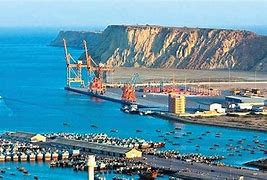On Wednesday, China expressed deep concern and strong opposition to what it described as the United States’ “reckless” imposition of tariffs, voicing its position during a World Trade Organization (WTO) meeting.
At the Council for Trade in Goods’ two-day session, China initiated a discussion on the U.S. policy of “reciprocal tariffs,” urging the U.S. to respect WTO rules to prevent adverse effects on the global economy and the multilateral trading system.
In its statement, China criticized the U.S. tariff strategy, asserting it breaches WTO principles and weakens the foundation of multilateral trade governance.
China highlighted the critical role of the WTO in maintaining global trade order, emphasizing that MFN-based tariff commitments ensure transparency, predictability, and non-discrimination in international trade.
China argued that the U.S. actions defy the MFN principle and its own tariff commitments under WTO rules, labeling the measures as classic examples of unilateralism, protectionism, and economic coercion.
China noted that the U.S., a major beneficiary of the global trade system, should not assess its trade performance merely through deficits or surpluses, calling such assessments narrow and misleading.
China warned that so-called “reciprocal tariffs” won’t address trade imbalances but will instead have a boomerang effect, ultimately harming the U.S. economy itself.
Reiterating its commitment to WTO principles, China urged all member states to protect the rules-based trading system and resolve trade disputes through established WTO channels.
China’s position received widespread backing from WTO members, including the EU, Switzerland, Canada, Kazakhstan, the UK, and Brazil, who also criticized the U.S. tariffs.
The EU described the U.S. tariffs as a serious threat to the global economy and multilateralism, warning they will not solve trade imbalances. Other members echoed the need for cooperative dispute resolution within the WTO framework to avoid escalating trade tensions.
Related Posts
China hits back with 34 percent tariffs on US Imports amid soaring trade tensions

















